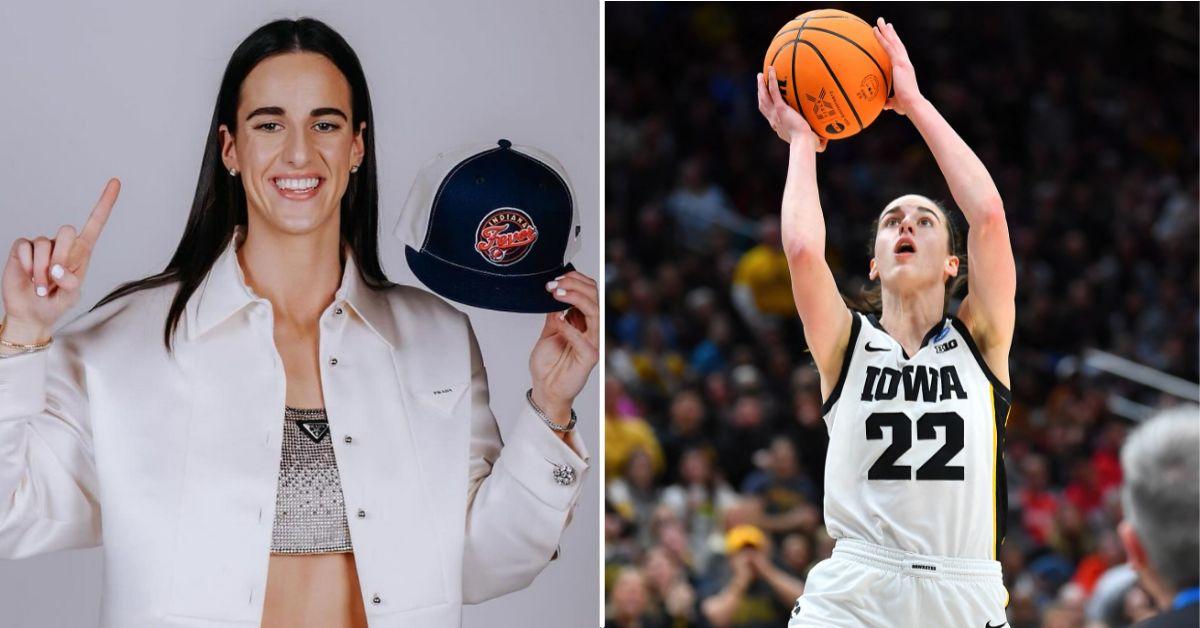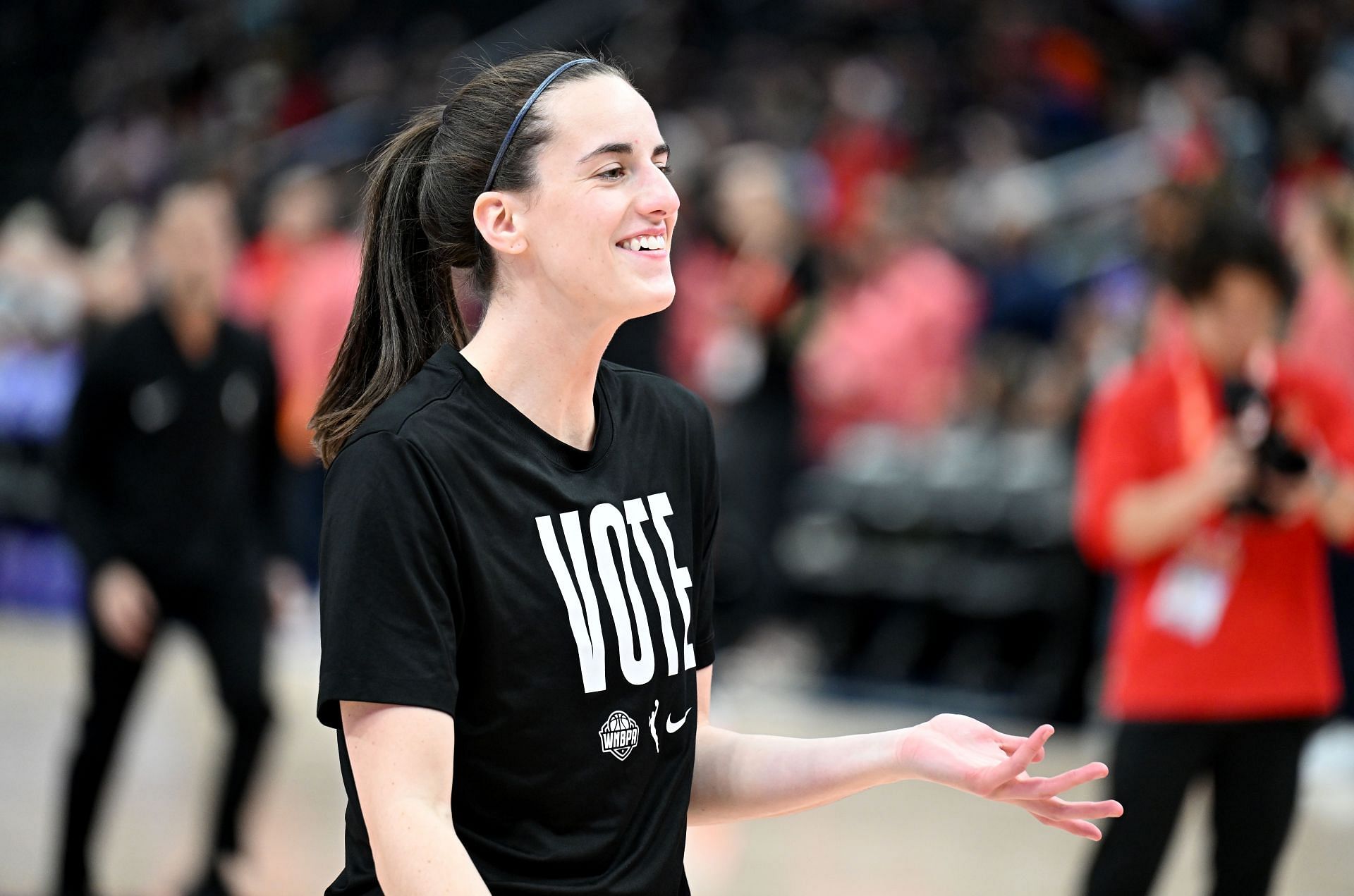In the dynamic world of women’s college basketball, few rivalries have captured the public’s imagination quite like that of Angel Reese and Caitlin Clark.
Both athletes have become household names, not only for their exceptional performances on the court but also for their compelling personalities and competitive spirits.
However, recent developments have brought this rivalry into a new light, as Caitlin Clark reportedly secured a groundbreaking endorsement deal with Michael Jordan’s iconic brand, causing visible distress and emotional challenges for Angel Reese.
The Rise to Stardom: Angel Reese and Caitlin Clark
:max_bytes(150000):strip_icc():focal(734x329:736x331)/Angel-Reese-and-Caitlin-Clark-tout-060324-00dc3fde18d744a395d90c5ea671244f.jpg)
Angel Reese, the star forward for the LSU Tigers, has been a dominant force in NCAA women’s basketball.
Her powerful presence in the paint, relentless rebounding, and charismatic leadership have made her a fan favorite.
Reese’s journey has been marked by resilience, determination, and a willingness to speak her mind, endearing her to supporters and sparking debates among critics.
Caitlin Clark, on the other hand, has become synonymous with offensive prowess and highlight-reel performances.
As the standout guard for the Iowa Hawkeyes, Clark’s deep shooting range, court vision, and scoring ability have drawn comparisons to NBA legends.
Her poise under pressure and ability to take over games have made her one of the most marketable athletes in college sports.
The Michael Jordan Endorsement: A Game-Changer for Clark
The announcement that Caitlin Clark has landed an endorsement deal with Michael Jordan’s legendary brand marks a historic moment in women’s basketball.
The Jordan Brand, long associated with excellence, innovation, and global appeal, has traditionally focused its marketing efforts on male athletes.
Clark’s inclusion in this elite circle not only signals her individual achievement but also represents a significant step forward for the recognition of women’s sports.
Industry insiders report that the deal includes a signature shoe line, apparel collaborations, and a multi-year commitment to promoting women’s basketball at all levels.
The partnership is expected to elevate Clark’s profile even further, opening doors to new sponsorship opportunities and expanding her influence beyond the court.
The Emotional Impact on Angel Reese

While the basketball community celebrates Clark’s achievement, sources close to Angel Reese suggest that the news has had a profound emotional impact on the LSU star.
Reese, who has often been compared to Clark in terms of talent and marketability, reportedly felt overlooked and undervalued following the announcement.
Observers noted visible signs of distress during recent public appearances, with Reese appearing less engaged and more withdrawn than usual.
Social media posts from the athlete hinted at feelings of frustration and disappointment, though she stopped short of directly addressing the endorsement deal. Close friends and teammates have expressed concern about her mental well-being, emphasizing the pressures faced by young athletes in the spotlight.
The Pressures of Fame and Comparison
The world of college athletics has changed dramatically in recent years, with Name, Image, and Likeness (NIL) deals transforming student-athletes into celebrities overnight.
While these opportunities bring financial rewards and increased visibility, they also introduce new challenges, including heightened expectations and constant comparison.
For Angel Reese, the comparison to Caitlin Clark has been both a blessing and a curse. On one hand, their rivalry has elevated the profile of women’s basketball, drawing record crowds and television audiences.
On the other hand, the relentless scrutiny and competition for endorsements can take a toll on an athlete’s mental health.
Experts in sports psychology note that public comparisons, especially when tied to high-profile business deals, can exacerbate feelings of inadequacy and anxiety.
“Athletes at this level are under immense pressure to perform not just on the court, but also in the marketplace,” explains Dr. Lisa Martinez, a clinical psychologist specializing in sports.
“When one athlete receives a major endorsement, it can trigger feelings of jealousy, self-doubt, and even depression in others who feel equally deserving.”
The Importance of Mental Health Support

In recent years, there has been a growing recognition of the importance of mental health support for athletes.
Organizations such as the NCAA and professional leagues have launched initiatives to provide counseling, stress management resources, and peer support networks.
Angel Reese’s situation underscores the need for comprehensive mental health care in collegiate sports.
Teammates and coaches have rallied around her, offering support and encouragement as she navigates this challenging period.
LSU’s athletic department has reiterated its commitment to the well-being of all student-athletes, emphasizing that success is measured not only by wins and endorsements but also by personal growth and resilience.
The Broader Impact on Women’s Basketball
Caitlin Clark’s endorsement deal with Michael Jordan is a watershed moment for women’s basketball, signaling a shift in how female athletes are valued and promoted.
For years, women’s sports have fought for equal recognition and investment, often facing barriers in sponsorship and media coverage.
Industry analysts predict that Clark’s partnership with the Jordan Brand will inspire other companies to invest in women’s basketball, creating new opportunities for athletes like Angel Reese and her peers.
The increased visibility and financial support could help close the gender gap in sports marketing, paving the way for future generations of female athletes.
However, the competitive nature of endorsements means that not every deserving athlete will receive the same level of attention.

This reality highlights the importance of supporting all athletes, regardless of their endorsement status, and fostering a culture of inclusivity and mutual respect.
Moving Forward: Lessons Learned
As Angel Reese works through the emotional challenges posed by recent events, her journey serves as a reminder of the complexities faced by athletes in today’s media-driven landscape.
The intersection of sports, business, and personal identity creates unique pressures that require understanding, compassion, and proactive support.
Caitlin Clark’s success should be celebrated as a milestone for women’s sports, but it should also spark conversations about how to ensure that all athletes feel valued and supported.
The rivalry between Reese and Clark has captivated fans, but it is essential to remember that behind the headlines are real people with real emotions.
The news of Caitlin Clark’s Michael Jordan endorsement deal has reverberated throughout the world of women’s basketball, highlighting both the progress made and the challenges that remain.
For Angel Reese, the emotional impact has been significant, prompting discussions about mental health, athlete support, and the pressures of fame.
As the sport continues to evolve, it is crucial to celebrate achievements while also recognizing the human side of competition.
By fostering a supportive environment and prioritizing mental well-being, the basketball community can ensure that all athletes have the opportunity to thrive—on and off the court.

